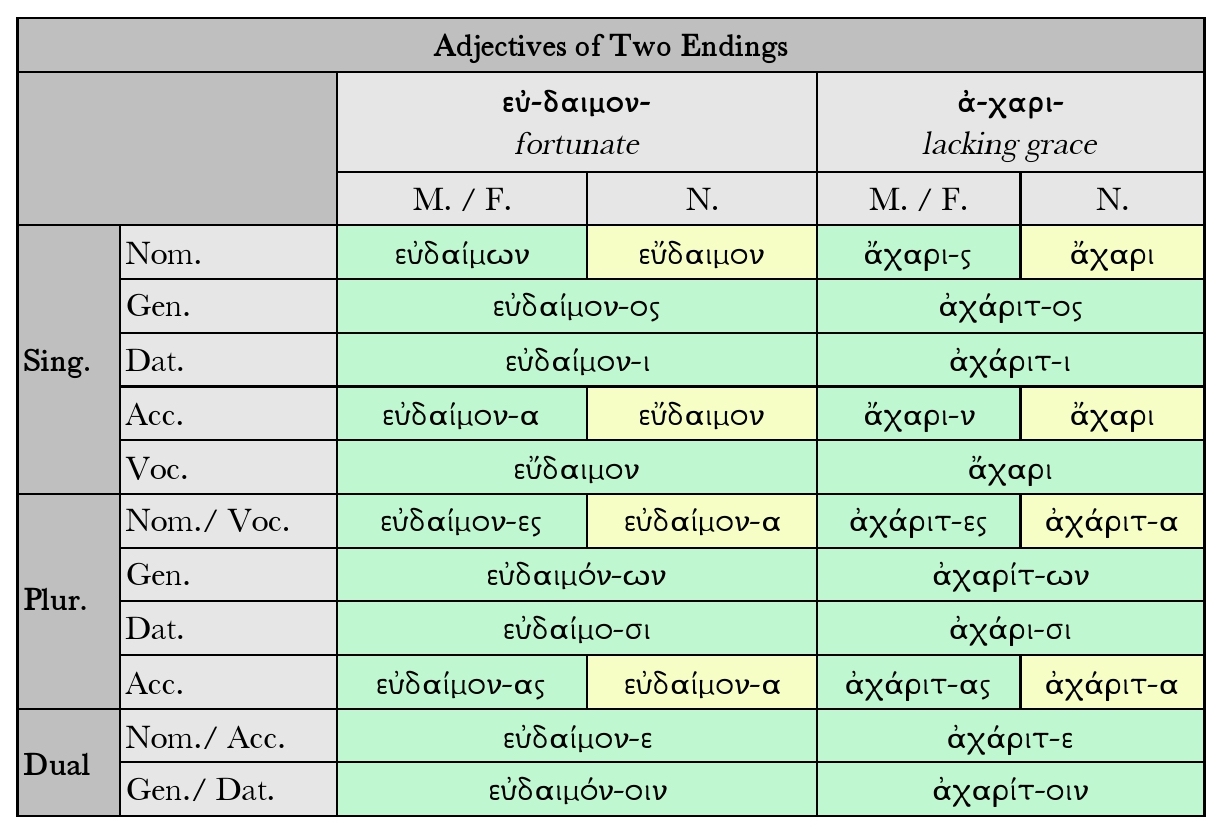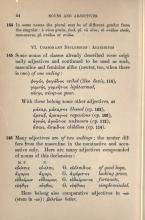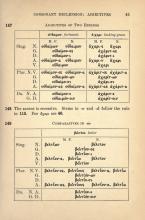145. Some nouns of classes already described were originally adjectives and continued to be used as such, masculine and feminine alike (neuter, too, when there is one) of one ending:
| φυγάς | φυγάδ-ος |
exiled |
| γυμνής | γυμνῆτ-ος | light-armed |
| πένης | πένητ-ος | poor |
With these belong some other adjectives, as
| μάκαρ | μάκαρ-ος | blessed | (cp. § 102) |
| ἅρπαξ | ἅρπαγ-ος | unknown | (cp. § 109) |
| ἀγνώς | ἀγνῶτ-ος | poor | (cp. § 112) |
| ἄπαις | ἄπαιδ-ος | childless | (cp. § 114) |
146. Many adjectives are of two endings; the neuter differs from the masculine in the nominative and accusative only. Here are many adjectives compounded οf nouns of this declension.
| Nominative | Genitive | ||
| M. / F. | N. | M. / F. / N. | |
| εὔελπις | εὔ-ελπι | εὐέλπιδ-ος | of good hope |
| ἄχαρις | ἄχαρι | ἀχάριτ-ος | lacking grace |
| εὐδαίμων | εὔδαιμον | εὐδαίμον-ος | fortunate |
| εὐήθης | εὔηθες | εὐήθους | simple-minded |
Here belong also comparative adjectives in -ων (stem in -ον): βελτῑ́ων (better).
147. Greek Adjectives of Two Endings
148. The accent is recessive. Stems in -ιτ and -ιδ follow the rule in § 115. For ἄχαρι see § 40.
Charts PDF



